
The Vibrant Plateau of Niamey: A Cultural and Historical Hub
The Plateau in Niamey is the beating heart of Niger's capital city. Known for its unique blend of history, culture, and modernity, this neighborhood offers a fascinating glimpse into the life of Niamey. From bustling markets to serene parklands, the Plateau has something for every traveler. Begin your journey at the National Museum of Niger, which houses an impressive collection of cultural artifacts and exhibits that showcase the rich history of the region. Just a stone's throw away is the Grand Mosque, an architectural marvel and a symbol of the city's religious heritage. The mosque’s towering minaret offers a panoramic view of the surrounding area, making it a must-visit spot for photographers. Don’t miss the vibrant local markets, where you can experience the hustle and bustle of daily life. The Grand Marché is a sensory delight, filled with colorful textiles, handmade crafts, and aromatic spices. It’s the perfect place to pick up a unique souvenir or simply enjoy the lively atmosphere. For a more relaxed experience, head to the lush greenery of the Jardin Botanique. This botanical garden is an oasis of calm in the heart of the city, offering shaded pathways, exotic plants, and a tranquil setting perfect for a leisurely stroll. In the evenings, the Plateau comes alive with a range of dining options, from street food vendors to upscale restaurants. Sample traditional Nigerien dishes or enjoy international cuisine while soaking in the vibrant nightlife. Whether you're a history buff, a nature lover, or a foodie, the Plateau in Niamey promises an unforgettable experience.
Local tips in Plateau
- Visit the National Museum of Niger early in the morning to avoid the crowds and the midday heat.
- Dress modestly when visiting the Grand Mosque, and be respectful of local customs.
- Bargain at the Grand Marché to get the best prices on souvenirs and local crafts.
- Carry bottled water with you, as the climate can be quite hot and dry.
- Consider hiring a local guide to enhance your understanding of the neighborhood's cultural and historical significance.
The Vibrant Plateau of Niamey: A Cultural and Historical Hub
The Plateau in Niamey is the beating heart of Niger's capital city. Known for its unique blend of history, culture, and modernity, this neighborhood offers a fascinating glimpse into the life of Niamey. From bustling markets to serene parklands, the Plateau has something for every traveler. Begin your journey at the National Museum of Niger, which houses an impressive collection of cultural artifacts and exhibits that showcase the rich history of the region. Just a stone's throw away is the Grand Mosque, an architectural marvel and a symbol of the city's religious heritage. The mosque’s towering minaret offers a panoramic view of the surrounding area, making it a must-visit spot for photographers. Don’t miss the vibrant local markets, where you can experience the hustle and bustle of daily life. The Grand Marché is a sensory delight, filled with colorful textiles, handmade crafts, and aromatic spices. It’s the perfect place to pick up a unique souvenir or simply enjoy the lively atmosphere. For a more relaxed experience, head to the lush greenery of the Jardin Botanique. This botanical garden is an oasis of calm in the heart of the city, offering shaded pathways, exotic plants, and a tranquil setting perfect for a leisurely stroll. In the evenings, the Plateau comes alive with a range of dining options, from street food vendors to upscale restaurants. Sample traditional Nigerien dishes or enjoy international cuisine while soaking in the vibrant nightlife. Whether you're a history buff, a nature lover, or a foodie, the Plateau in Niamey promises an unforgettable experience.
Iconic landmarks you can’t miss
Grand Market Niamey
Discover the lively Grand Market in Niamey, where culture, commerce, and cuisine converge in a vibrant shopping experience.
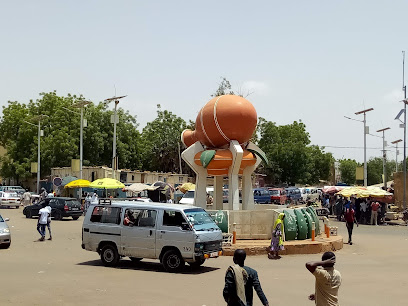
Great Mosque of Niamey
Discover the Great Mosque of Niamey, a stunning architectural marvel and cultural hub in the heart of Niger's capital, rich in history and local traditions.
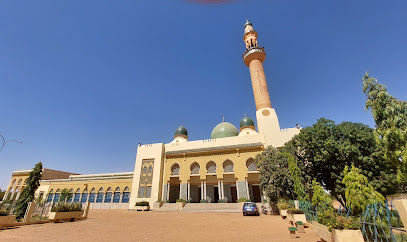
Boubou Hama National Museum
Explore the Boubou Hama National Museum, where Niger's rich history and vibrant culture come to life through captivating exhibits and artistic displays.
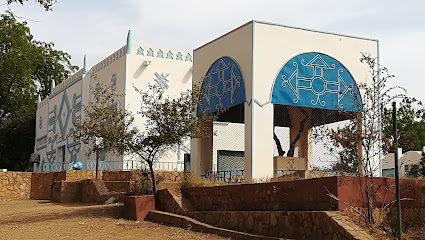
Habou Tégui Yantala
Explore the vibrant Habou Tégui Yantala Market in Niamey, where local culture, delightful cuisine, and unique crafts await every visitor.
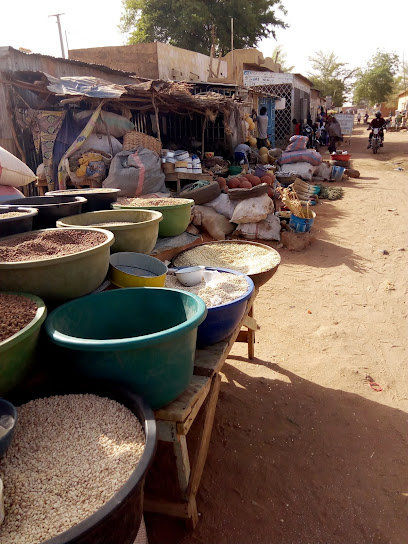
Congress Palace
Discover the rich cultural landscape of Niger at the Congress Palace, Niamey's premier exhibition and trade center, showcasing local art and traditions.
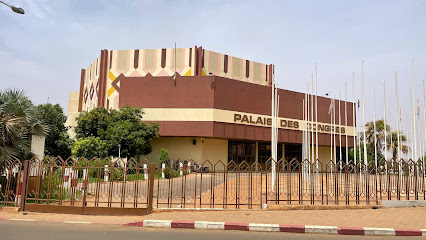
Rond Point Route Filingué
Explore the Rond Point Route Filingué in Niamey, a stunning monument rich in culture and history, perfect for travelers seeking to experience Niger's heritage.
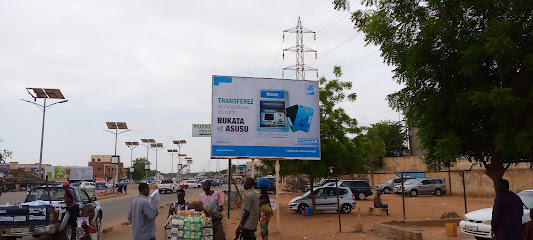
Mosquée Cité Caisse
Discover the architectural beauty and cultural significance of Mosquée Cité Caisse, a serene oasis in the heart of Niamey, Niger.
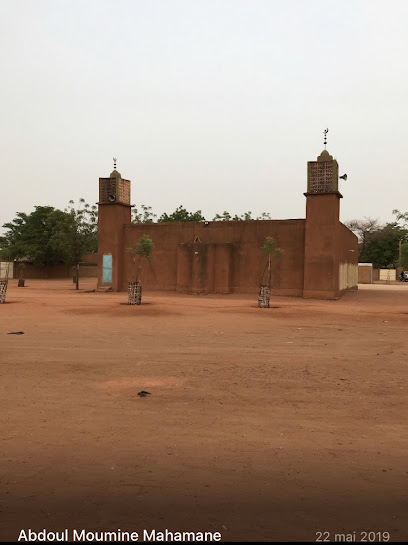
Palais des Sports
Discover the vibrant atmosphere of Palais des Sports in Niamey - a central hub for basketball and community events that brings locals together.
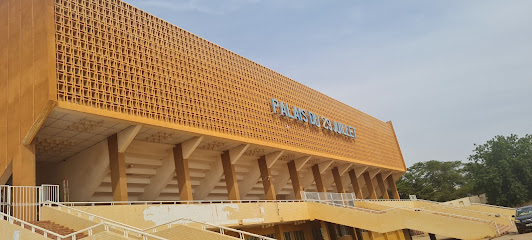
Nouvelle Cité EAMAC
Experience the youthful energy and vibrant culture at Nouvelle Cité EAMAC, the heart of student life in Niamey, Niger.
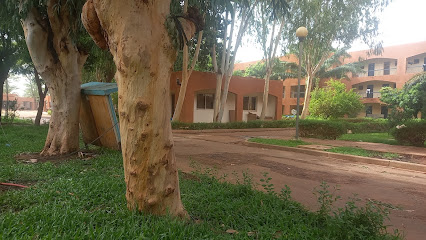
Our Lady of Perpertual Help Cathedral
Explore the stunning Our Lady of Perpetual Help Cathedral in Niamey, a remarkable blend of architecture and spirituality in the heart of Niger's capital.
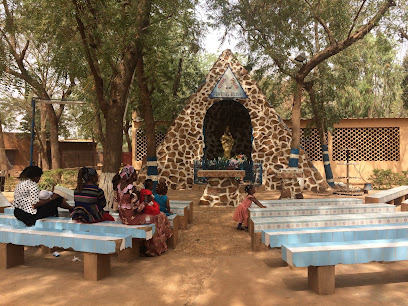
Rond point justice
Explore the heart of Niamey at Rond Point Justice, a monument symbolizing resilience and justice, rich in culture and history.
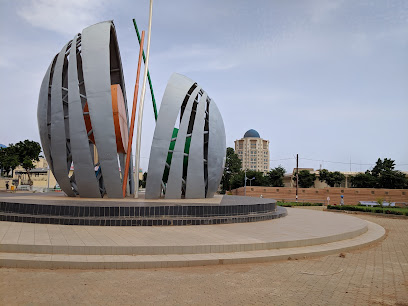
Monument de la Francophonie
Discover the Monument de la Francophonie in Niamey – a magnificent symbol of cultural unity and the French language, set in beautifully landscaped surroundings.
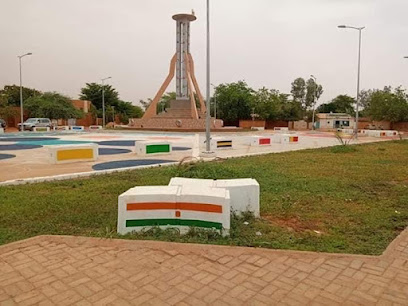
Papayo plateau
Experience the vibrant flavors of Niger at Papayo Plateau, Niamey's premier dining destination for an authentic culinary adventure.
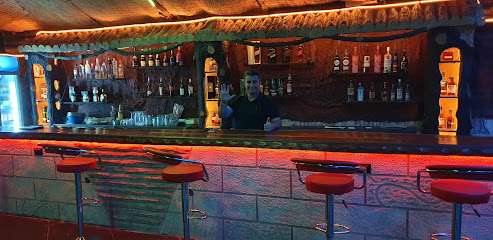
Ront Point de la Renaissance
Explore Ront Point de la Renaissance, a vibrant cultural monument in Niamey, symbolizing renewal and progress in the heart of Niger.
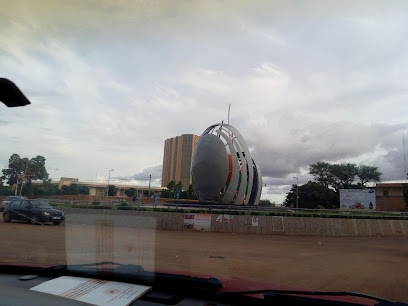
plateau
Discover the vibrant Plateau district in Niamey, home to the stunning courthouse reflecting Niger's architectural heritage and lively local culture.

Unmissable attractions to see
Parc de l'amitié Nigero Turque
Experience the vibrant charm of Parc de l'amitié Nigero Turque in Niamey, where culture, fun, and relaxation come together in a beautiful setting.
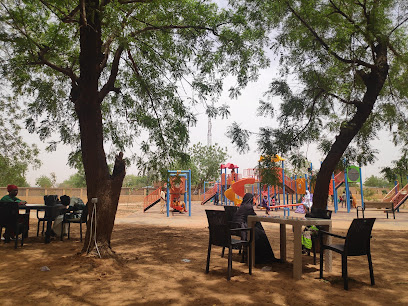
Rond-point Palais des sports
Discover the cultural vibrancy of Niamey at Rond-point Palais des Sports – a lively hub for art, music, and local cuisine in Niger's capital.
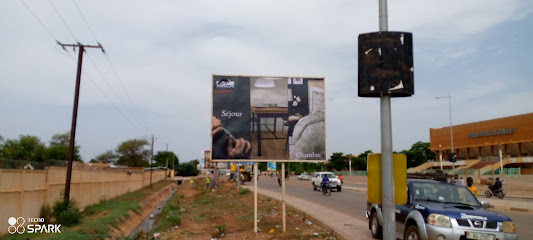
Fortinite ili babaye
Discover the tranquility of Fortinite ili Babaye, a serene park in Niamey that offers a peaceful retreat amidst lush greenery and local culture.

Amphithéâtre 500 places
Discover the Amphithéâtre 500 places in Niamey, a cultural hub showcasing the vibrant arts scene and rich heritage of Niger.

Essential places to dine
La Cabane
Experience the rich flavors of Nigerien cuisine at La Cabane – where every meal tells a story.
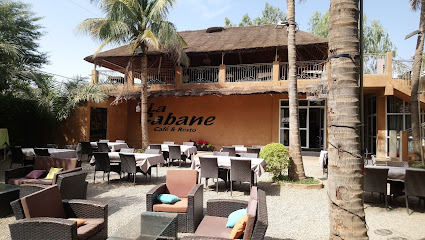
The Pillar Restaurant
Experience authentic Italian cuisine at The Pillar Restaurant in Niamey – where every meal is a celebration of flavor.
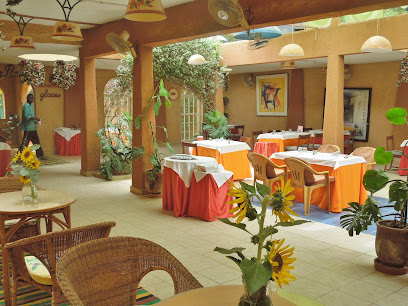
Restaurant 3 Epices
Experience the vibrant flavors of local and international cuisine at Restaurant 3 Epices in Niamey.
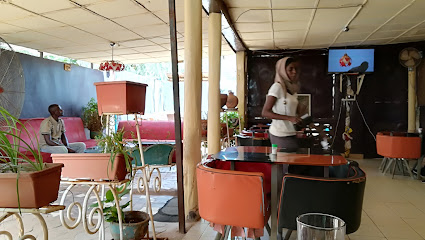
Malabar
Discover Malabar in Niamey: where local flavors meet international cuisine in an inviting setting perfect for all occasions.
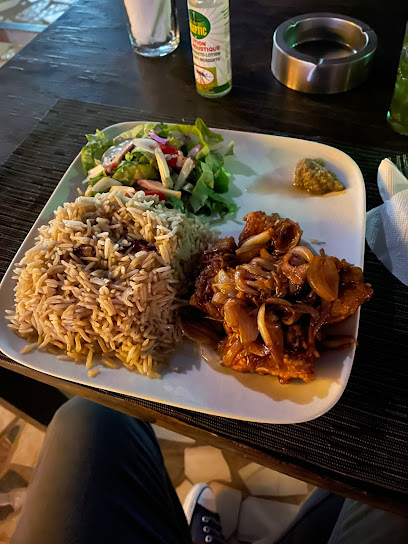
Restaurant KARASU
Discover the vibrant flavors of Niger at Restaurant KARASU – where local cuisine meets global tastes in an inviting atmosphere.
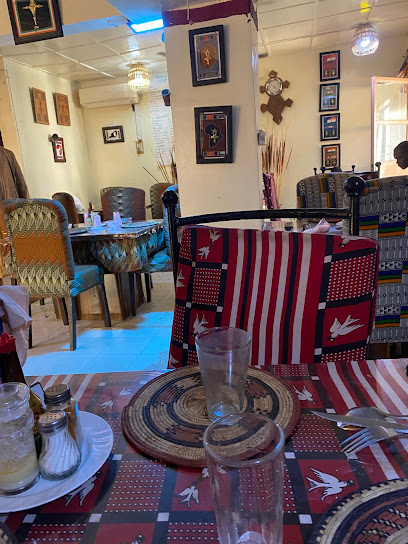
The Grill House by Berry's
Discover authentic African flavors at The Grill House by Berry's in Niamey - where every dish tells a story.
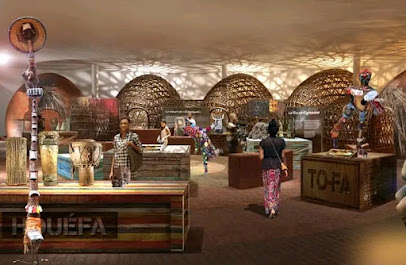
Restaurant ALHAMDOULILLAH
Experience authentic Nigerien cuisine at Restaurant ALHAMDOULILLAH in Niamey – where tradition meets flavor in a welcoming atmosphere.
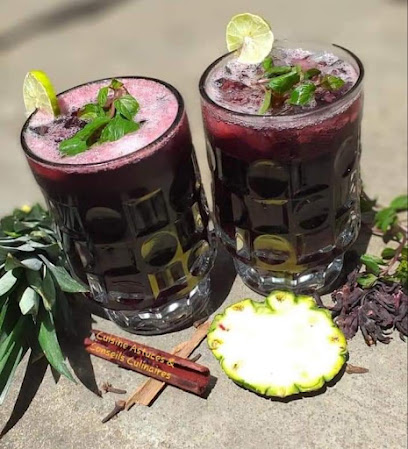
Chez Caro-Restaurant
Discover the flavors of Niger at Chez Caro-Restaurant in Niamey - where local cuisine meets international flair.

African Food
Experience authentic African cuisine at its finest in Niamey—delicious dishes await at this must-visit restaurant.
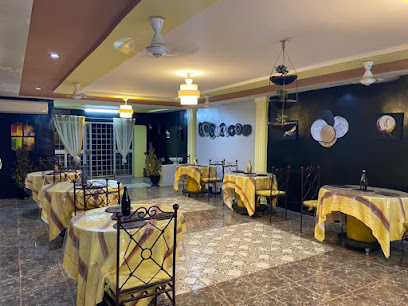
Océan des Saveurs plateau
Experience the rich flavors of Niger at Océan des Saveurs, where culinary tradition meets modern flair in a delightful atmosphere.
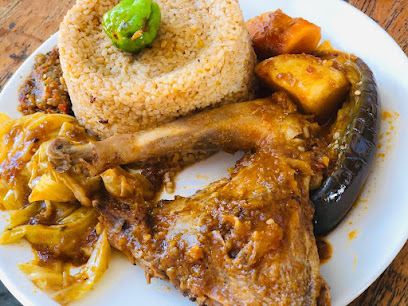
Markets, malls and hidden boutiques
Broadway Shop
Explore Broadway Shop in Niamey for authentic gifts and clothing that showcase Niger's rich cultural heritage.
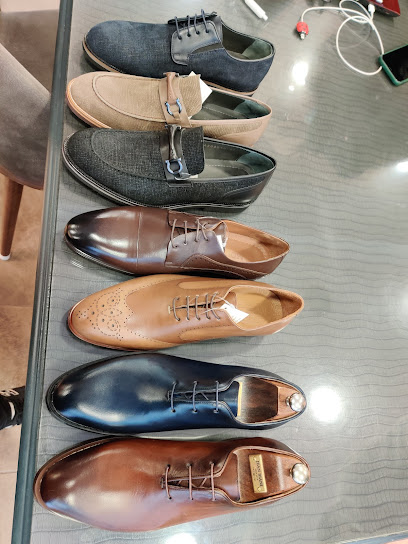
Hama Boutique
Explore Hama Boutique in Niamey for exquisite handcrafted jewelry reflecting the rich heritage of Niger's artisanal culture.
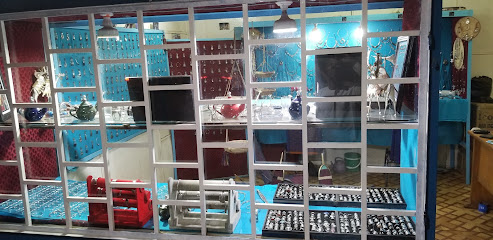
Authentic BREEZE by Dija
Explore unique, locally crafted fragrances at Authentic BREEZE by Dija in Niamey – a perfume lover's paradise.
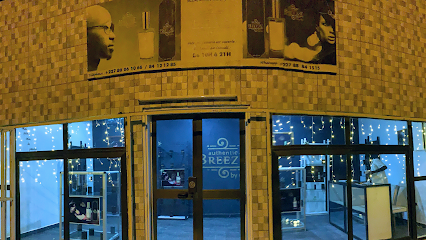
Boutique velvet
Explore the essence of Nigerien fashion at Boutique Velvet, where unique styles and cultural richness come together in a chic shopping experience.

Steeps
Discover unique fashion accessories that celebrate Nigerien culture at Steeps in Niamey, a must-visit for every fashion enthusiast.
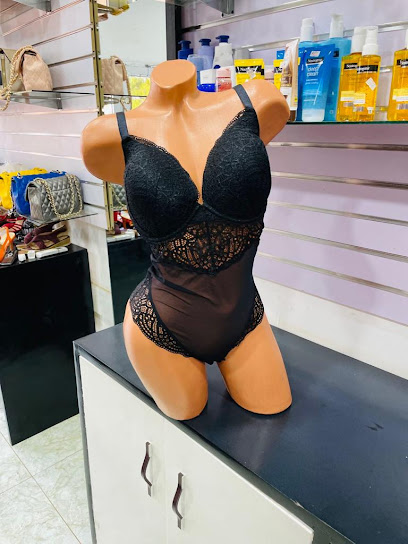
D&G Shop
Discover unique fashion at D&G Shop in Niamey, where local culture meets contemporary style in a vibrant shopping experience.
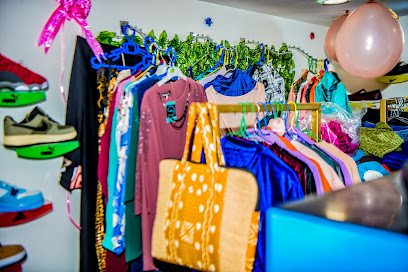
Boutique Garantché
Discover stylish and functional workwear at Boutique Garantché, a unique shopping experience in the heart of Niamey, Niger.
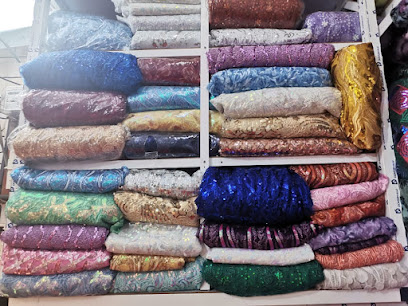
Grâce Laliba Artisanat
Explore the heart of Niger's craftsmanship at Grâce Laliba Artisanat, where unique handcrafted gifts await every traveler.
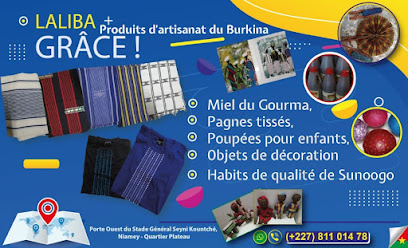
Boutique Ma Passion
Explore Boutique Ma Passion in Niamey for fashionable clothing that blends tradition and modernity, reflecting the vibrant culture of Niger.

Addiction plus (A+)
Explore the best of duty-free shopping at Addiction Plus (A+) in Niamey, offering a wide range of exclusive products and local treasures.
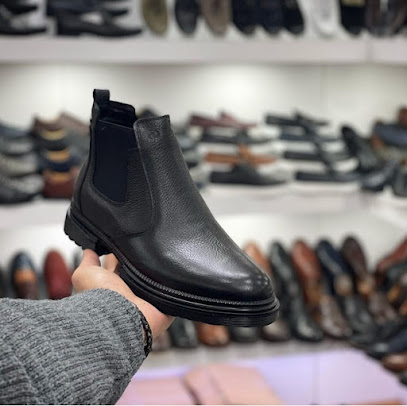
Essential bars & hidden hideouts
Sky Lounge
Experience the vibrant nightlife of Niamey at Sky Lounge, where stunning views and a diverse drink menu create unforgettable moments.
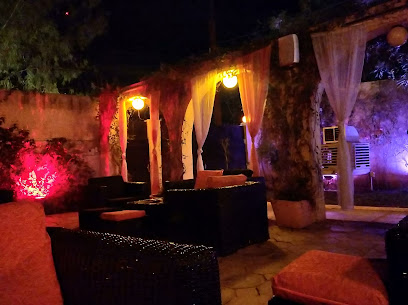
Club Mooky
Discover the vibrant nightlife of Niamey at Club Mooky, where refreshing drinks and lively ambiance await to enhance your travel experience.
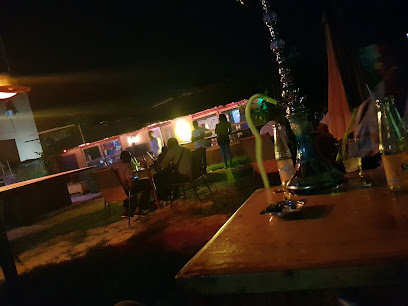
L'Escale - Select Bar
Dive into the vibrant nightlife of Niamey at L'Escale, a lively bar offering a unique blend of local culture and refreshing drinks.
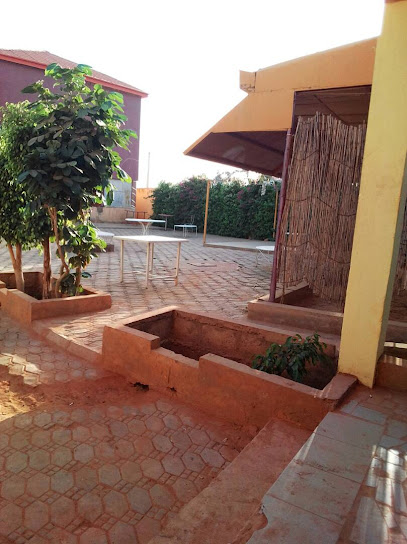
Bar l'epervier
Discover Bar l'Epervier, a vibrant bar in Niamey where locals and tourists gather for great drinks and lively atmosphere.
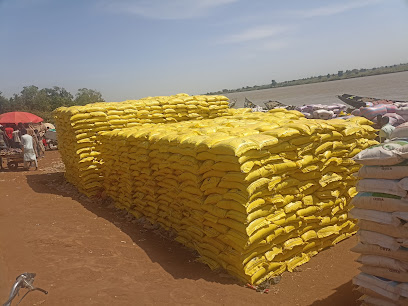
BLAST RESTO-LOUNGE
Discover the vibrant vibes of BLAST RESTO-LOUNGE in Niamey, where great food meets live music for an unforgettable experience.
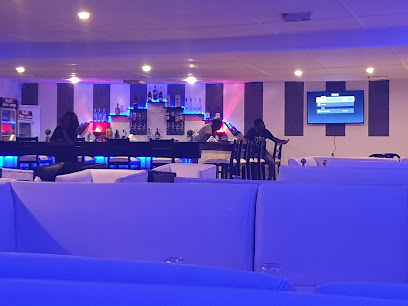
Teras bar
Experience the vibrant nightlife of Niamey at Teras Bar, where refreshing drinks and a lively atmosphere await every traveler.

Living Room
Experience the lively nightlife of Niamey at The Living Room, a cozy bar offering delightful drinks and a vibrant atmosphere.
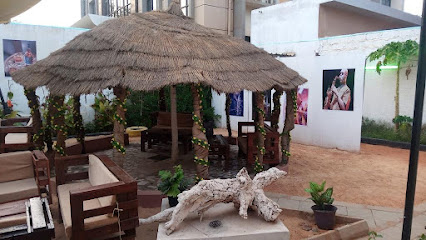
Pool Bar Wayno
Discover the vibrant flavors and relaxing atmosphere of Pool Bar Wayno, the perfect grill and pizza restaurant in Niamey.
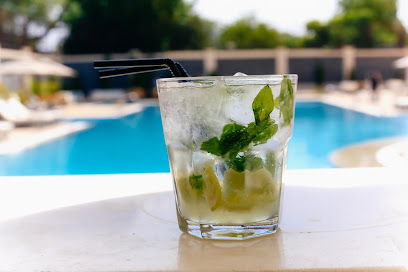
Bar Eltoro
Experience the vibrant nightlife of Niamey at Bar Eltoro, where delicious drinks meet a lively atmosphere.
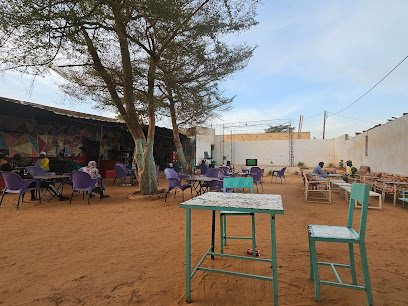
Restaurant ortm
Discover the vibrant flavors of Niger at Restaurant Ortm, a local bar and dining experience in the heart of Niamey.

Local Phrases
-
- HelloSannu
[sah-noo] - GoodbyeSai an jima
[sigh ahn jee-mah] - YesEh
[eh] - NoA'a
[ah-ah] - Please/You're welcomeKai
[kai] - Thank youNa gode
[nah goh-deh] - Excuse me/SorrySamu
[sah-moo] - How are you?Ina kwana?
[ee-nah kwa-nah] - Fine. And you?Lafiya. Kana lafiya?
[lah-fee-yah. kah-nah lah-fee-yah] - Do you speak English?Ka iya fassara Turanci?
[kah ee-yah fah-sah-rah too-rahn-chee] - I don't understandBa nayi fahimtar
[bah nah-yee fah-heem-tar]
- HelloSannu
-
- I'd like to see the menu, pleaseIna so na duba menu, don Allah
[ee-nah soh nah doo-bah meh-noo, dohn ah-lah] - I don't eat meatBa zan iya ci abinci
[bah zahn ee-yah chee ah-been-chee] - Cheers!Barka da shan ruwa!
[bar-kah dah shahn roo-wah] - I would like to pay, pleaseIna so na kudin, don Allah
[ee-nah soh nah koo-deen, dohn ah-lah]
- I'd like to see the menu, pleaseIna so na duba menu, don Allah
-
- Help!Taimaka!
[tai-mah-kah!] - Go away!Zo kusa!
[zoh koo-sah!] - Call the Police!Kirga ta tsakiya!
[keer-gah tah tsah-kee-yah!] - Call a doctor!Kirga dokin!
[keer-gah doh-keen!] - I'm lostNa gudu
[nah goo-doo] - I'm illNa kwarai
[nah kwah-rah-ee]
- Help!Taimaka!
-
- I'd like to buy...Ina so na sayi...
[ee-nah soh nah sah-yee...] - I'm just lookingNa fadi ne
[nah fah-dee neh] - How much is it?Shi ne yadda?
[sheh neh yahd-dah?] - That's too expensiveWannan ya fi karfi
[wahn-nahn yah fee kahr-fee] - Can you lower the price?Zaka iya sake yin yadda?
[zah-kah ee-yah sah-keh yeen yahd-dah?]
- I'd like to buy...Ina so na sayi...
-
- What time is it?Yaya lokaci ne?
[yah-yah loh-kah-chee neh?] - It's one o'clockShi ne bakin daya
[sheh neh bah-keen dah-yah] - Half past (10)Rabin da (ashirin)
[rah-been dah (ah-shee-reen)] - MorningSafe
[sah-feh] - AfternoonAzahar
[ah-zah-hahr] - EveningYamma
[yahm-mah] - YesterdayJibi
[jee-bee] - TodayYau
[yah-oo] - TomorrowGobe
[goh-beh] - 1Daya
[dah-yah] - 2Biyu
[bee-yoo] - 3Uku
[oo-koo] - 4Hudu
[hoo-doo] - 5Biwar
[bee-wahr] - 6Shida
[shee-dah] - 7Bakwai
[bah-kwai] - 8Takwas
[tahk-wahs] - 9Tara
[tah-rah] - 10Goma
[goh-mah]
- What time is it?Yaya lokaci ne?
-
- Where's a/the...?Ina da...?
[ee-nah dah...?] - What's the address?Yaya adireshin ne?
[yah-yah ah-dee-reh-sheen neh?] - Can you show me (on the map)?Zaka iya nuna min (a cikin rubutu)?
[zah-kah ee-yah noo-nah meen (ah chee-keen roo-boo-too)?] - When's the next (bus)?Yaya lokaci ne na gaba (motar)?
[yah-yah loh-kah-chee neh nah gah-bah (moh-tahr)?] - A ticket (to ....)Takiti (zuwa...)
[tah-kee-tee (zoo-wah...)]
- Where's a/the...?Ina da...?
History of Plateau
-
Plateau, the administrative heart of Niamey, was significantly shaped during the French colonial period in the late 19th and early 20th centuries. The French established their presence in Niger in 1890, and Plateau became a focal point for colonial administration. The architecture from this era, including government buildings and colonial residences, reflects the blend of French and local influences, marking the beginning of modern urban development in Niamey.
-
Following Niger's independence from France in 1960, Plateau evolved into a symbol of national pride and governance. The post-colonial period saw the construction of important institutions, including the National Assembly, and the development of infrastructure that contributed to the burgeoning capital's expansion. This period was marked by a growing sense of nationalism and identity, which was reflected in the architecture and urban planning of the neighborhood.
-
Plateau serves as a cultural melting pot, where diverse ethnic groups, including the Zarma, Hausa, and Tuareg, converge. This diversity is celebrated through various festivals and cultural events, showcasing traditional music, dance, and crafts. The neighborhood is home to several cultural institutions and art galleries that promote Nigerien culture and heritage, making it a vibrant hub for artistic expression.
-
As the center of political activity in Niamey, Plateau has witnessed significant political events, including protests and rallies that shaped Niger's political landscape. The neighborhood's proximity to key government buildings has made it a focal point for civic engagement and activism, reflecting the ongoing dialogue between the government and the citizens of Niger.
-
In recent years, Plateau has seen rapid urbanization and development, with the construction of new hotels, restaurants, and commercial spaces catering to both locals and tourists. However, this growth has also presented challenges, including issues related to urban planning, infrastructure strain, and the preservation of cultural heritage. Efforts are underway to balance modernization with the conservation of Plateau's historical and cultural sites.
Plateau Essentials
-
To reach Plateau from other neighborhoods in Niamey, visitors can use local taxis, which are the most convenient option. The journey from the city center typically takes around 15-20 minutes. Public minibuses (aka 'bush taxis') also operate in Niamey, providing an affordable means of transportation; however, they may not directly service Plateau. For international visitors, the nearest airport is Diori Hamani International Airport, located about 12 kilometers from Plateau.
-
Plateau is relatively small and walkable, making it easy to explore on foot. For longer distances, local taxis are available and can be hailed from the street or booked via phone. While there are no trains in Niamey, public minibuses (bush taxis) operate throughout the city. Bicycle rentals are also an option for those wishing to explore at a leisurely pace, though be cautious of traffic.
-
Plateau is generally considered safe for tourists, but it is advisable to remain vigilant, especially in crowded areas. Petty crimes such as pickpocketing can occur, particularly in markets or tourist hotspots. It is recommended to avoid isolated areas after dark. Certain neighborhoods, particularly those further from the center, may have higher crime rates; it’s best to seek local advice and stay in well-trafficked areas.
-
In case of an emergency, dial 18 for police assistance and 15 for medical emergencies. Local hospitals are available, but it’s recommended to have travel insurance that covers emergency medical care. For minor health issues, pharmacies can be found throughout Plateau. Always keep emergency contact numbers handy.
-
Fashion: Do dress modestly, especially in public places and when visiting religious sites. Avoid revealing clothing. Religion: Do show respect for local customs; it's advisable to cover your head when entering mosques. Public Transport: Do be courteous; offer your seat to the elderly or pregnant women. Don't eat or drink on public transport. Greetings: Do greet with a handshake and a smile; it's a sign of respect. Eating & Drinking: Do try local dishes and accept food offerings; don't refuse hospitality as it may offend your hosts.
-
To experience Plateau like a local, visit the nearby markets for fresh produce and handmade crafts. Engage with vendors and locals to learn about the culture and cuisine. Attend local festivals if your visit coincides with them, as they offer a glimpse into the vibrant community life. Try local dishes such as 'djerma' (a type of stew) and 'fufu' (a starchy side dish) in family-run eateries for an authentic taste of Nigerien cuisine.
Trending Landmarks in Plateau
-
Grand Market Niamey
-
Great Mosque of Niamey
-
Boubou Hama National Museum
-
Habou Tégui Yantala
-
Congress Palace
-
Rond Point Route Filingué
-
Mosquée Cité Caisse
-
Palais des Sports
-
Nouvelle Cité EAMAC
-
Our Lady of Perpertual Help Cathedral
-
Rond point justice
-
Monument de la Francophonie
-
Papayo plateau
-
Ront Point de la Renaissance
-
plateau
Nearby Cities to Plateau
-
Things To Do in Ziniaré
-
Things To Do in Ouagadougou
-
Things To Do in Ouahigouya
-
Things To Do in Koudougou
-
Things To Do in Tamale
-
Things To Do in Dédougou
-
Things To Do in Wa
-
Things To Do in Kaduna
-
Things To Do in Atakpamé
-
Things To Do in Ibadan
-
Things To Do in Abeokuta
-
Things To Do in Kano
-
Things To Do in Notse
-
Things To Do in Bobo-Dioulasso
-
Things To Do in Kpalimé










